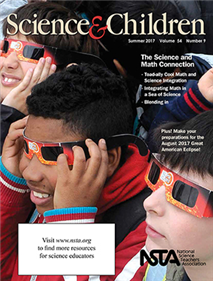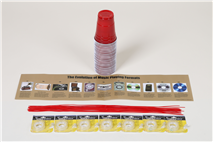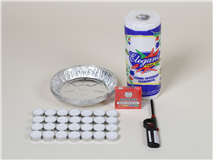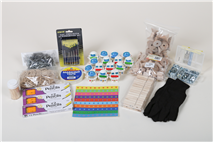All Physical Science resources
Blog Post
Using Claim, Evidence, and Reasoning (CER) Strategy to Improve Student Learning
This past school year, I used claim, evidence, reasoning (CER) statements to show three-dimensional learning in my classroom. Several tools are available for doing this, but the one my students like is the CER Graphic Organizer and Transition Words L...
By Cindy Workosky
Journal Article
Science 101: Q: How Do Self-Driving Cars Work?
This column provides background science information for elementary teachers. This month’s issue discusses the science behind self-driving cars....
Journal Article
This column shares exercises to challenge content knowledge. This month's issue presents a new challenge and answers The Sound of One Hand Clapping challenge from last month....
Blog Post
Why Anchoring Phenomena Are Important in the NGSS Classroom
Who is Ivor Robson, and why is he associated with anchoring phenomena? If you are a longtime golf aficionado, you know that Ivor Robson had a special role at the British Open. Robson spent 41 years introducing each player on the first tee, and he nev...
By Cindy Workosky
Blog Post
When I began aligning my instruction to the Next Generation Science Standards (NGSS), I got lost in the details. But when I realized that phenomena could be used to anchor linked disciplinary core ideas, I started to visualize the course as a whole a...
By Cindy Workosky
Blog Post
My ‘Phenomenal’ Journey in Elementary
I am the type of educator who gets very excited about new strategies, new and innovative technology, and new activities for students. However, I was more nervous about than excited about to choosing phenomena for my science units. I felt tremendous p...
By Cindy Workosky
Blog Post
Using the Crosscutting Concepts to Scaffold Student Thinking
At the recent NSTA National Conference in Los Angeles, three-dimensional learning was, of course, a major topic of discussion. When those discussions focus on classroom instruction, though, the crosscutting concepts are often the forgotten dimension....
By Cindy Workosky
Blog Post
At the core of a Next Generation Science Standards (NGSS) classroom is the sequence of exposing students to an interesting natural phenomenon, having students generate questions about the phenomenon, investigating student questions, then creating a s...
By Cindy Workosky
Blog Post
Digging Deeper: Designing Solutions
This month’s Digging Deeper column for the Next Gen Navigator focuses on the practice of constructing explanations and designing solutions, and specifically the design process that addresses the engineering component of the Next Generation Science ...
By Cindy Workosky
Class Pack
From Edison to the IPod ClassPack: Grades 3-5
Using Picture-Perfect STEM Lessons: 3-5: Using Children’s Books to Inspires STEM Learning in your classroom is easier than ever! NSTA’s ClassPacks, each sufficient for a class of 28 students, are lesson-specific collections of materials—an unma...
Class Pack
Based on the award-winning, best-selling Picture-Perfect STEM series, this ClassPack pairs effortlessly with the Picture-Perfect Grades 3-5 Lesson "Burn" to combine reading comprehension, literacy, and science in your classroom! Using Picture-Perfec...
Class Pack
Wind It Up ClassPack: Grades 3-5
Using Picture-Perfect STEM Lessons: 3-5: Using Children’s Books to Inspires STEM Learning in your classroom is easier than ever! NSTA’s ClassPacks, each sufficient for a class of 28 students, are lesson-specific collections of materials—an unma...






